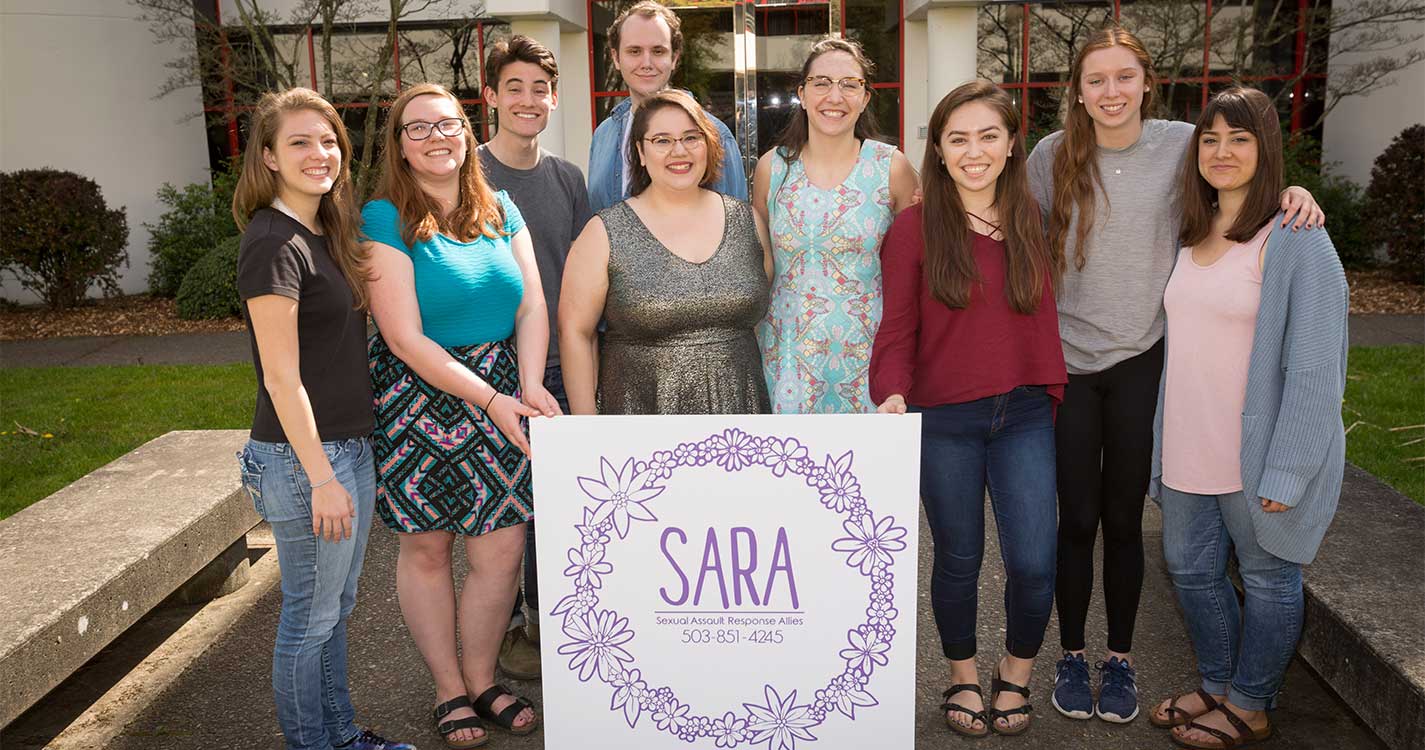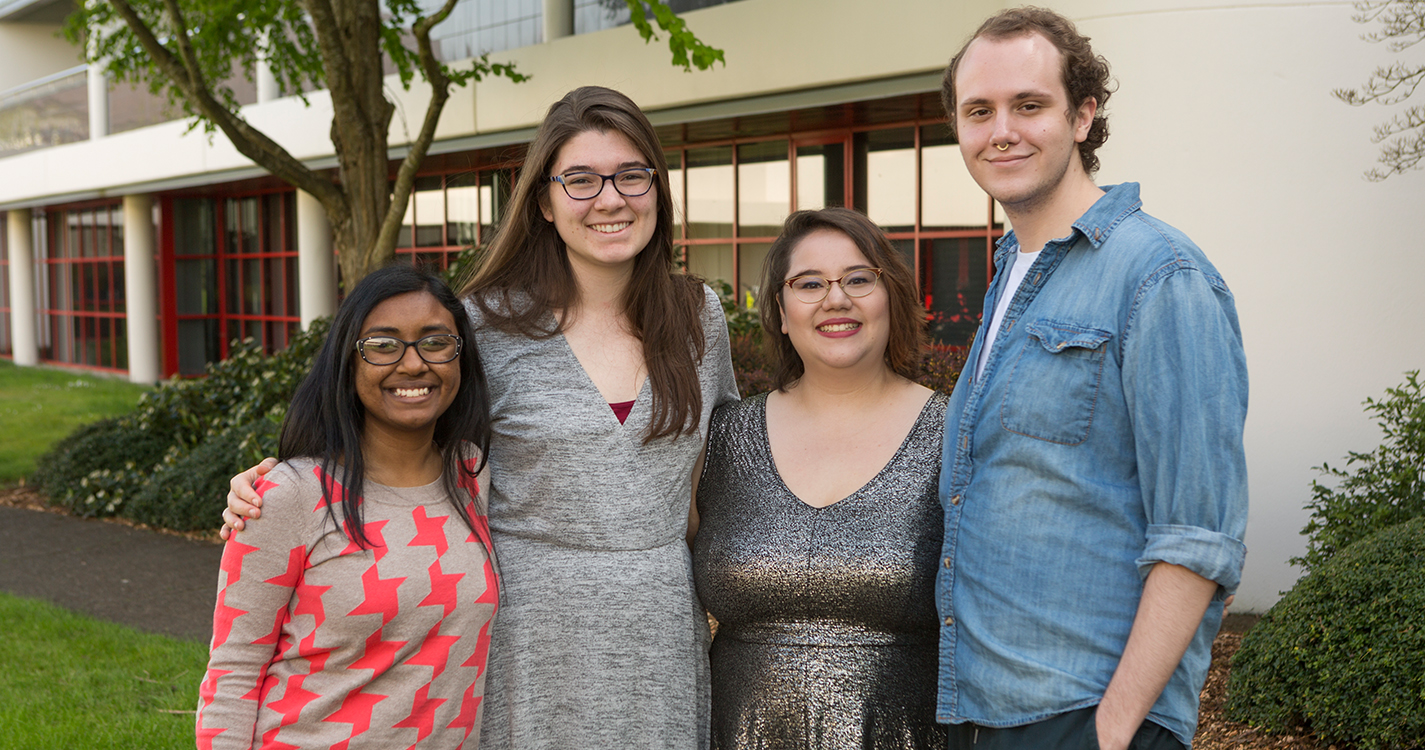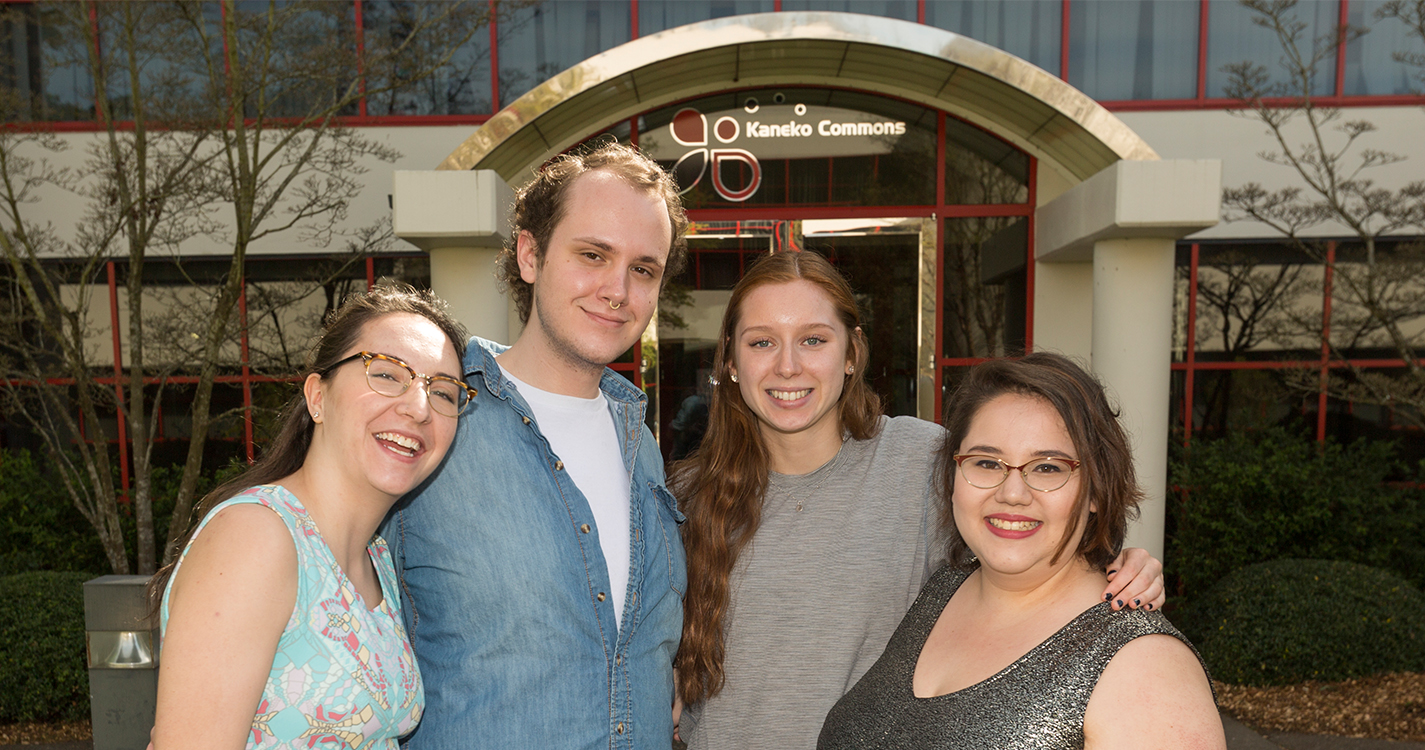Most people don’t report sexual assault to officials, whether to college staff members or law enforcement agencies. But they often tell a friend.
Before Jenny McKenzie ‘08 formed Sexual Assault Response Allies a decade ago, Willamette students didn’t have the option of speaking confidentially and anonymously to a fellow student who’s been trained to help.
More than 100 students have served since the group was founded. The volunteers are known around campus as SARAs, and the job takes a special kind of person. “It’s absolutely fantastic to be able to contribute to the community, but it’s not for everyone,” says Bethanie Lee ‘17, the group’s outgoing president. “Being a SARA requires overwhelming empathy and compassion. It’s a worthwhile investment, but it’s also emotionally taxing.”
SARAs aren’t counselors or therapists, says Lee. “I promote SARA as a crisis support and resource referral organization,” she says. SARAs usually don’t see the same person more than once to help ensure that students understand a SARA’s role.
“We function as a stepping stone for survivors to resources available to them,” says Lee. “It’s a delicate line in the middle of the conversation during a crisis to know when to transition from sympathetic ear to resource referral, and everyone does it differently.”
Though each person differs in their communication style, SARAs focus on the well-being of the student, listening and connecting that person with others in the community who can help, including people who can provide confidential counseling on- or off-campus. SARAs services are confidential, and they share with the university only nonidentifiable information required under federal law. They don’t share any information with law enforcement agencies but can help students who want to file a complaint with the university or police.
Though an unpaid, emotionally demanding, part-time student position requiring dozens of hours of training might seem like a tough job to fill, the group’s doubled in size in recent years. In part, that’s because people who join tend to stay until they graduate.
The incoming president, Matt Jensen, is one of those students. After joining SARA as a first year student, Jensen says that the experience probably kept them at Willamette. “Seeing a few dedicated people make such an impact is very fulfilling,” says Jensen.
The group will recruit next in spring 2018. Jensen notes that not everyone who applies will be hired. Though SARAs are unpaid volunteers, the job responsibilities require a lot of training and oversight to ensure vulnerable students receive exceptional care and support.
Like Lee, Jensen also described the importance of listening. “A good SARA is a person who can be unbiased, open to learning, who cares and knows how to listen.”
Interested in learning about SARA? Visit its website and contact Jensen at mjensen@willamette.edu for more information.




